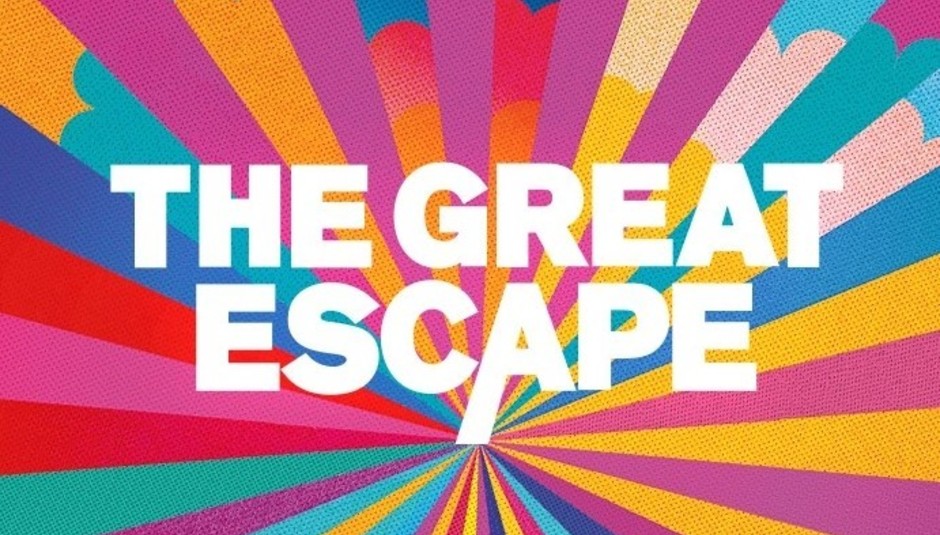In our ninth installment looking at how to organise a music festival, DiS goes behind the scenes with The Great Escape's Event Manager Kevin Moore, who's responsible for putting together Europe's biggest showcase event.
DiS: When did you first become involved with The Great Escape?
Kevin Moore: My first year was in 2012. My first role was looking after all the bars and international trades people such as Sounds Australia and Swiss Music Export. All the international partners basically. I looked after that side of things and also oversaw the running of The Alternative Escape until 2015 when I took up the role of General Manager, which involved overseeing the day-to-day management of the event from liaising with our production team and Adam (Ryan) who's our booker to making sure the ship is steering in the right direction.
Was it a massive change in your day-to-day responsibilities when you eventually became Event Manager?
Kind of, because it touched on more different parts of the event. Prior to taking on this role I'd never been too involved in some of the production decisions. I also became more involved with Adam, predominantly in terms of booking the bigger international artists that appear higher up the bill. Also having conversations about which genre we, as a showcase event for new talent, should be getting the most excited about. An example of that was when we decided to go for Skepta and JME as headliners in the Dome in 2015. That type of thing.
The Great Escape has grown considerably over the years in terms of both the number of performing artists and participating venues. Do you see any further opportunities to grow even bigger in the future?
Not massively no in so much as the enormous challenge about Brighton is you're often determined by what the city offers you at that particular time. There's only so many suitable venues in Brighton and we can only program in as many as we can house a PA in. So in terms of the number of bands we've stuck around the 450 mark for a number of years. What we've ended up trying to do is put on more performances for those artists. We had a record number this year, somewhere in the region of 670 individual performances. I guess we're always looking to carve out different spaces in the city that have always been there, but never really been considered as a venue before. A good example of that would be putting Slaves on the Horror Hotel at the end of the pier. Sadly it was the day when the heavens opened so everyone got pretty wet, but it was still exciting to see a space evolve into a venue. Also we're trying to expand our street parties and create events in open spaces a little bit more. That's something we'd like to do going forwards although outside spaces are of premium value in May because there's so much other stuff going on as well. It's just working out where we can look to tweak and change things. Maybe push things that little bit more so the event can grow in the right kind of way. It's just about making sure we do exactly that. Grow in the right way at the right pace. It's not about growing the event in terms of the number of people who attend or artists that are playing. It's more about improving the actual quality and value of the event. I would much rather have the same number of people attend paying the same amount of money year on year but us giving them more. The more value for money you can give to people, the better the experience. I want our festival goers to go home happy, tell their friends what a great time they had and ultimately come back again the following year.
The Alternative Escape is a sister event to The Great Escape but do you see it as being competition in some ways?
When you have an event like The Great Escape in a place like Brighton there's going to be loads of people that want to get involved, so The Alternative Escape was originally set up to give these people a platform of their own. We didn't have room for everyone within our core festival program so this gave those on the periphery somewhere to house their events in conjunction with what we do. Also, most of the artists playing at the Alternative Escape weren't quite at the same level as those playing on the core Great Escape program. We see it as a stepping stone for those acts wanting to eventually get onto the core program. As with the core event, The Alternative Escape has continued to grow and we perhaps need to tweak it a bit, again in the right way, just to make sure we can both work in tandem. I don't want one to be seen as a more viable option than the other, if you see what I mean...
Also, I notice some of the venues that have been an integral part of previous years' events such as Concorde 2 weren't used this year. Was that because of its location and distance from the main central hub? Did you aim to make the venues more compact and closer together this year?
Kind of, but that's not to say we think any less of that venue. Concorde 2 is one of the biggest and best venues in Brighton but sometimes you have to look and things and think whether or not a venue has worked for us as much as we hoped it would do over the past couple of years. So this year we made the bold decision to give it a rest and if the festival works without maybe we can learn from that going forwards. It doesn't mean we won't reintroduce that venue in the future. It's always been a popular venue for both bands and customers alike, but I guess also people were glad they didn't have to make that long trek down the sea front every night. We don't want to do the same things every year just because we can. We want to keep tweaking things hopefully to improve both the festival and every participant's experience whether that be from an artist's, delegate's or paying customer's point of view.
The Great Escape has been running for 12 years now. Do you think Brighton's music scene has benefited as a result?
Brighton's music scene was already doing fantastic things before The Great Escape came along so I don't necessarily think we've made things better in that sense. What we have provided is that extra platform for new and emerging talent in Brighton to be discovered more quickly. Let's take a band like Royal Blood for example. They were always going to be massive regardless of whether The Great Escape existed. Same with Rag'N'Bone Man. He was always going to be a fantastic performer. He's played The Great Escape three years running now and each time, he's built a platform around him so he can come back on a bigger trajectory the following year. So I think we've helped Brighton based artists in that way. Playing at The Great Escape should never be an artist's sole ambition. It should be the first peak of many peaks on what is hopefully a long and fruitful journey. It's about building themselves around the event so you have the momentum to push on even further.
When do you start planning for the following year's event?
It normally starts before the previous year's event has taken place, so preparations for 2018 already started earlier this year. We're already looking at changes we want to make, things we could do differently next year and then we'll start to gauge people's opinions who attended the 2017 event throughout the summer. After that, we spend a few weeks brainstorming all of these ideas. Which are the best ones? How can we incorporate them into next year's program? In terms of bookings, they're pretty black and white as to when they should start and when they should stop whereas all of the other festivals seem to be starting theirs earlier every year. Although we're booking new music, we don't really need to look any earlier so the first bookings tend to take place around August time whilst the greenfield site festivals are still on. We have an idea by that time about some of the new artists who are starting to create a buzz around them and who should be ready for The Great Escape come the following May. So from mid-September onwards, we go full pelt into booking. We launched our First 50 event last year, which meant we had already got a good chunk of the best new talent by late October.
Who do you see as your main rivals?
There are some great festivals in the UK who we see as competition. Festivals like Dot To Dot which happens in Bristol, Nottingham, and Manchester the weekend after ours. Live At Leeds is another that goes from strength to strength every year and takes place just before The Great Escape. Liverpool Sound City is another competitor although they've tweaked their festival model slightly in recent years. They're three in the UK market that definitely keep us on our toes. Looking at overseas events and taking into account both the business and delegate sides as well, I always see Reeperbahn Festival as a fantastic competitor. They're a similar age to us and every single year I'm impressed at how they continue to evolve. It's kind of good that we're at opposite ends of the festival calendar because they get inspiration from what we're doing and likewise we get inspiration from them. It's quite healthy competition in that sense. Also, Eurosonic is almost like the granddaddy of showcase events in Europe.
Do you think the growing popularity of European festivals has had an impact on the UK festival market?
I think it's had an impact. There are always going to be people who want to dry different things. By the same token there are also those that like to go to the same events year upon year and we're fortunate at The Great Escape to have a regular fanbase. That doesn't mean we should rest on our laurels and assume the same people will just turn up every year. They might have a great experience one year but try something different the next so it's up to us to give them a reason to keep considering us and hopefully retain our audience every single year. Ultimately from our point of view, if they do decide to try somewhere else, we want them to realise The Great Escape is better and return to us the following year.
Do you worry about the showcase festival market becoming saturated?
I think it already is to be honest. The festival market, in general, became saturated a long time ago. When The Great Escape celebrated its tenth anniversary back in 2015 it was quite a big thing. When I looked at how many other festivals had started around that same time - 2006/2007 - there seemed to be loads of new ones popping up all over the place but not many have survived the test of time like us. It's such a cut throat market that even a successful first couple of years doesn't necessarily mean the next year will be as good. It only takes one really bad year for a festival to go under and there's only so many people who'll buy so many tickets in the market at any given time. That's why it's so important to always reassess what you're doing and why someone should spend their money coming to your event rather than somebody else's. We're constantly focused on what we're doing and never rest on our laurels. You should never expect people to just come irrespective of how well the previous year's event might have done.
What advice would you give to someone looking to start up their own festival?
Plan it properly. You can't just put a festival on overnight and expect it to run smoothly. What recently happened at Fyre Festival is living proof of that. I'm sure they had good intentions from the outset, but they clearly underestimated how complicated putting together an event of such magnitude can be. It takes time to build the festival into the event you're trying to achieve, and then you have to convince people into actually paying for that. Also, make sure you've got the right team around you. Make sure you've got experienced people running the production side and the right people booking the artists you want to put on. The right people working on the marketing side, spreading the word and ultimately persuading people to buy tickets for your event. It's also important to allow yourself the right amount of time to put those ideas into action.
For more information on The Great Escape visit their official website.
How To Organise A Music Festival #1 Best Kept Secret
How To Organise A Music Festival #2 Green Man
How To Organise A Music Festival #3 Beacons Metro
How To Organise A Music Festival #4 Pop Montreal
How To Organise A Music Festival #5 SWN
How To Organise A Music Festival #6 2Q
How To Organise A Music Festival #7 Tallinn Music Week
How To Organise A Music Festival #8 SPOT Festival






















